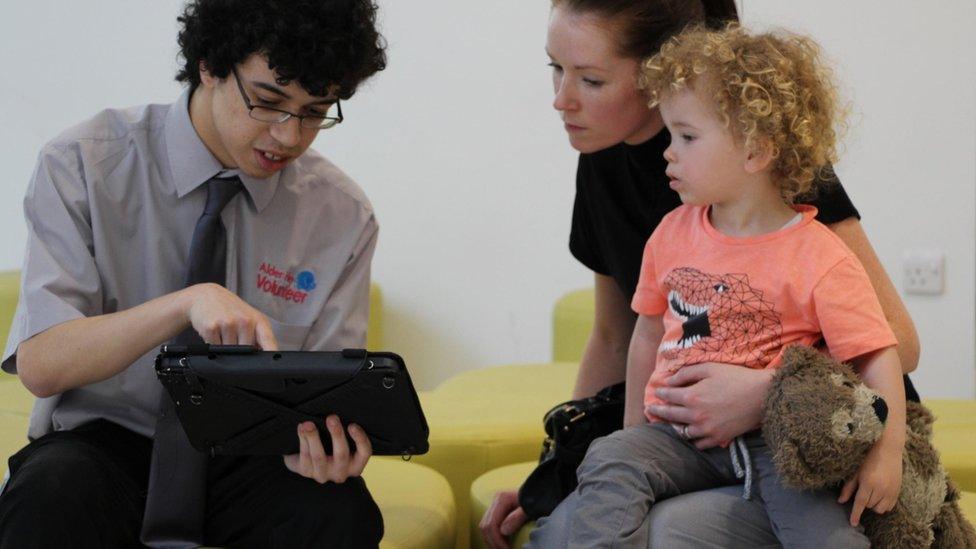IBM AI system Watson to diagnose rare diseases in Germany
- Published
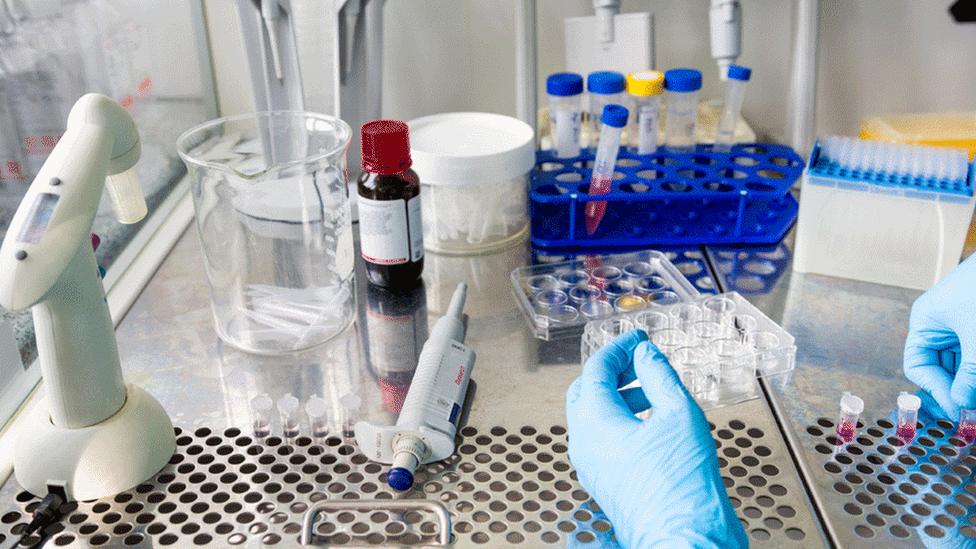
Watson will help diagnose rare diseases
IBM's artificial intelligence platform Watson will work with doctors in Germany attempting to solve some complex medical cases.
It will be based at the Undiagnosed and Rare Diseases Centre at the University Hospital in Marburg.
So far, Watson has looked at half a dozen cases, but it is unclear how many it has correctly diagnosed.
AI systems are increasingly being used in healthcare, with Google's DeepMind partnering several UK hospitals.
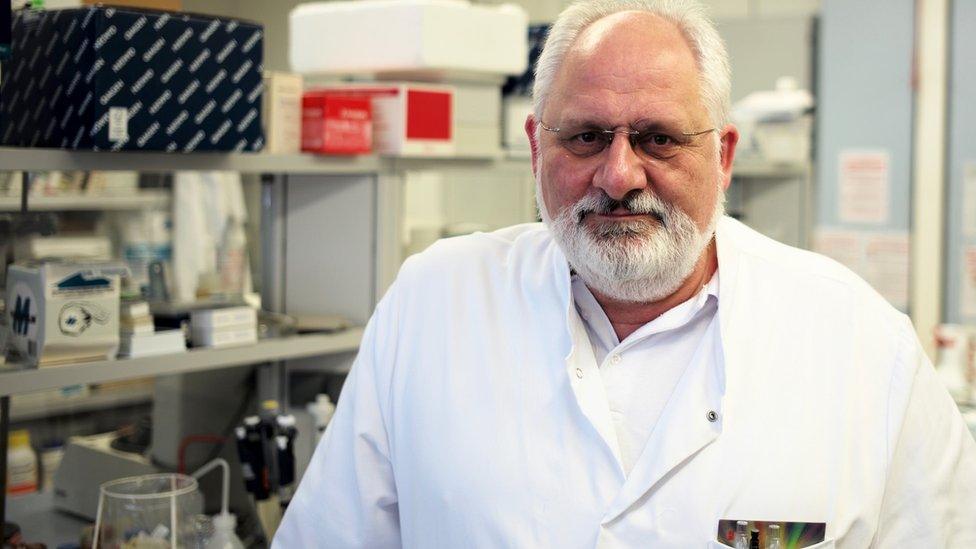
Prof Schafer has been nicknamed "Germany's Dr House" after a US medical TV drama of the same name
The Watson partnership, with private hospital group Rhon-Klinkum AG, will be piloted from the end of the year.
Since it opened in 2013, University Hospital of Giessen and Marburg has had more than 6,000 patients on its waiting list.
"That number is almost a nightmare," said Prof Dr Jurgen Schafer, who heads the medical team there. "We need new ideas and new technology."
The patients who arrive at the hospital often have very long medical histories and may have been seen by up to 40 physicians who have failed to diagnose them, said Prof Schafer.
"It is not uncommon for our patients to have thousands of medical documents, leaving us overwhelmed not only by the large number of patients, but also by the huge amount of data we have to review," he said.
"Our work is often like looking for the proverbial needle in the haystack - even the smallest piece of information could lead to an accurate diagnosis."
Watson will "read" the patients' medical files alongside vast amounts of medical literature to offer a series of ranked diagnoses.
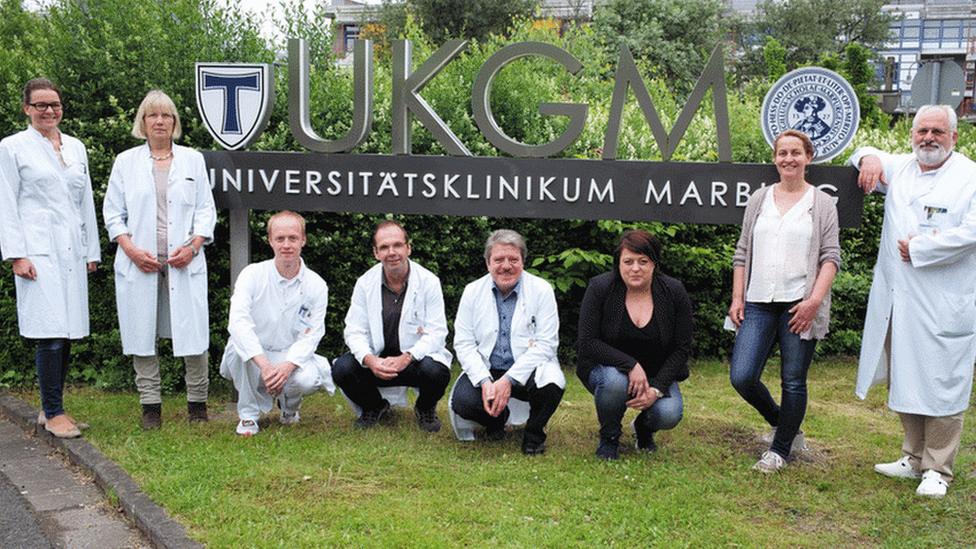
The doctors think that tech such as Watson will work alongside them rather than replace
Dr Schafer said he is confident that that the system works.
There has been controversy around the idea of technology firms having access to patient data, with some critics saying such firms should get more explicit consent from patients before being given their medical records.
In Germany, patients must give "informed consent" and their medical records are "completely anonymised" when they enter the Watson engine. All analysis will take place at the hospital and, said Prof Schafer, "will never leave our systems".
The hospital is currently testing the system, running 500 past cases via Watson to see how it will diagnose them.
Dr Schafer told the BBC that such systems should not just be confined to private hospitals with the resources to pay for them.
"Our medical systems need hi-tech... I would hope that it makes it cheaper in the long run," he said.
"As happy as I am that our clinic owner is going to invest a lot of money in these technologies, it also needs to be done by public health authorities.
"This is an amazingly important and powerful tool and government would be wise to get into this field."
- Published6 May 2015
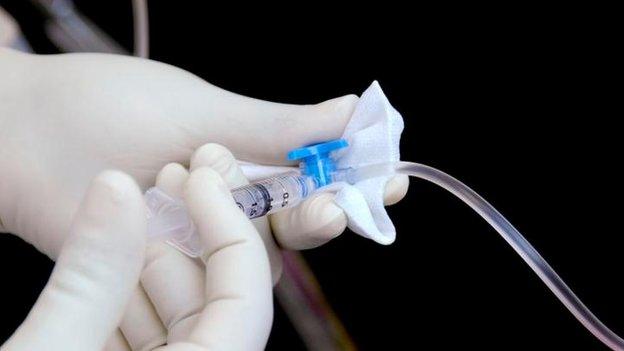
- Published11 May 2016
